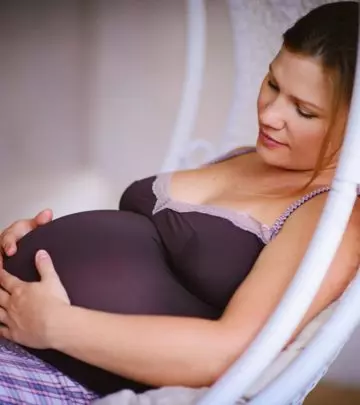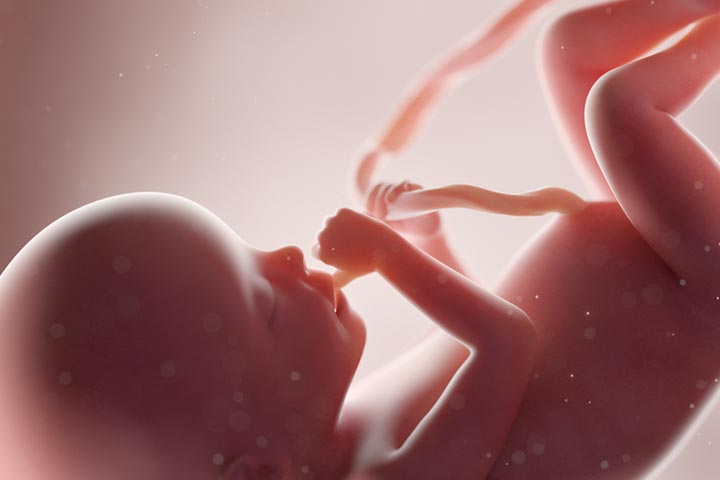
Image: Shutterstock
You know how they say you are what you eat? The truth is, your baby is also what you eat! Yes, as long as your little one is in the womb, the baby eats and drinks exactly what you’ve ingested. However, when in the womb, your baby doesn’t digest food the same way you do. The process of eating food, digesting, and then pooping, is different for your unborn child. Being aware of how this works is essential. This way, you’ll know if your baby is in trouble and if any complications arise that need medical intervention. Read on to figure out how digestion works in the womb:
How Does Digestion Work In The Womb?
We do know that diaper duties will take up a lot of time when your baby comes out, but who’s doing it when your baby is in your womb? Well, there is no need for it because babies do not poop in the womb. So how exactly is digestion taking place? Is the digestive system being used in the womb at all?
Any nutrition that a baby needs is directly absorbed from the mother to the child’s system with the help of the placenta. The placenta is a temporary organ that is formed during pregnancy in the uterus. It is responsible for providing nutrition and oxygen to the child, as well as removing waste from your baby’s blood. Everything that you eat and drink is passed on to your baby through the placenta. This is why you are advised to eat and drink healthily during pregnancy (1).
Although your child doesn’t poop in your womb, it does not mean that your baby isn’t using its digestive system. In fact, your baby starts prepping up for digestion as early as thirteen weeks, where amniotic fluid is swallowed and excreted via the urinary system. Swallowing, which is one of the first steps to digestion, has already begun at this time (2).
By fourteen weeks of your pregnancy, your baby will begin other digestive processes such as chewing and sucking. You may even see that your child has already started to suck their thumb at twenty-one weeks — an ultrasound will show you this. Peristalsis, which is the wave-like movement that helps move food along the digestive tract, will begin when you’ve reached week twenty-three of your pregnancy (3), (4).
Everything that has to be excreted will collect in your baby’s intestines. This build-up is known as meconium. You’ll notice a sticky, greenish substance the first few times your baby poops after birth. What you see here is meconium, and it is the accumulated waste from your child’s digestive tract during your baby’s stay in your womb (5).
What Happens If Your Baby Poops In The Womb?
Yes, we did mention that babies don’t poop until they’re out of the womb, but sometimes, it can happen. When this happens, it can prove to be dangerous for your child. If your baby poops, the meconium may get mixed with the amniotic fluid. As we all know, the baby can swallow amniotic fluid — swallowing this along with meconium can lead to complications such as Meconium Aspiration Syndrome (6).
Babies suffering from Meconium Aspiration Syndrome experience distress while breathing and will require medical intervention with immediate effect. If you notice that you’ve been leaking brown or greenish amniotic fluid, reach out to your healthcare provider immediately. Your doctor might prepone the delivery date if this is the case, so your baby can be treated as soon as possible (7), (8).
The human body is a wonderful thing, and how it functions is definitely mind-blowing. Digestion is an essential part of day-to-day life, and you now know your unborn child has been preparing for it, even in your womb. What are your thoughts on this? Let us know in the comments below!














